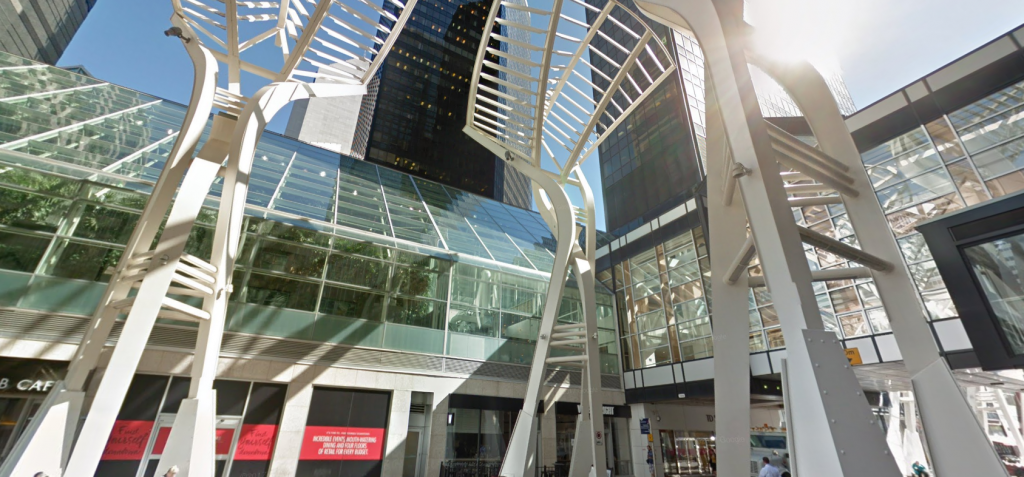Abuses warrant tossing case against suspected Egyptian terrorist, court urged
Posted Dec 7, 2016 12:02 pm.
Last Updated Dec 7, 2016 3:40 pm.
This article is more than 5 years old.
TORONTO – The case against an Egyptian man long branded a terrorist threat has been riddled with so many problems over the years that a judge should have ended the proceedings, Federal Court of Appeal heard Wednesday.
Instead, his lawyer argued, Judge Edmond Blanchard upheld the national security certificate imposed on Mohamed Mahjoub despite finding the government had violated his rights.
“The remedies provided in relation to the violations found by Justice Blanchard were inadequate,” Mahjoub’s lawyer Paul Slansky said.
“He found there was an unfair trial. Once you find an unfair trial, it’s game over.”
Mahjoub, 56, of Toronto, has been in prison or under severe restrictions since the government first decided in 2000 — based in part on secret evidence supplied by foreign agencies linked to torture — that he posed a threat to Canada’s national security.
Among other things, Canada’s spy agency alleged Mahjoub was a leading member of the Egyptian terror group Vanguards of Conquest, and a trusted associate of former terrorist mastermind, Osama bin Laden — accusations Mahjoub has always denied.
The current two-day hearing consolidates three separate appeals to his security certificate, which allows for detention or restrictions of foreign nationals without charge or trial. The government argues Blanchard’s judgments were correct and the security certificate should stand.
Slansky told the panel the case has seen a series of abuses related to the reasonableness of the certificate; how the government obtained, preserved or handled evidence; and excessive delays in the proceedings. These violations individually or cumulatively warranted a stay, he said.
“The administration of justice is so seriously impacted by these, there can be no effective remedy short of a stay,” Slansky said.
In all cases, Blanchard, who is now deceased, found the problems weren’t serious enough to stay the proceedings or quash the certificate.
“There is simply no conspicuous evidence of improper motives, bad faith or an act so wrong that it violates the conscience of the community such that it would be genuinely unfair and indecent to proceed,” Blanchard wrote in November 2013.
But Slansky argued that national security concerns don’t water down a person’s rights, and the remedies the Federal Court judge devised to redress the problems he found simply weren’t adequate or effective.
In one situation, for example, government lawyers in 2011 inadvertently took boxes of Mahjoub’s lawyers’ notes and files from a locked courthouse room. In response, Blanchard said the government had been “negligent” and ordered 11 of its lawyers and clerks off the case.
“The judge attempted to fashion a remedy,” Judge David Stratas noted.
“It’s a useless remedy. It’s window dressing,” Slansky responded. “It was therefore unlawful and unconstitutional.”
For one thing, agents with the Canada Security and Intelligence Service were not removed from the case, he said.
Other problems Slansky noted related to intelligence officials failing to respect Mahjoub’s right to remain silent, telling him he wasn’t a target of an investigation when he was, spending years listening to his calls with lawyers, using torture-tainted evidence, and destroying documents.
Government lawyer Marianne Zoric rejected the idea of “massive and systematic charter violations” in the Mahjoub investigation and court process, even if it wasn’t flawless, but said Blanchard was fair in his rulings.
“There’s no question that he identified where he thought things went wrong,” Zoric said. “He didn’t pull his punches.”
In upholding the security certificate, Zoric noted, Blanchard found Mahjoub was once a top executive at an enterprise in Sudan run by bin Laden. The judge also found Mahjoub had lied about contacts with known terrorists while in Canada.
Mahjoub, who first came to Canada in December 1995 and was granted refugee status in October 1996, has staved off deportation because of the risk he would be tortured if sent back to Egypt. He was released in 2009 under stringent conditions, most of which were upheld this summer.
The hearing continues Thursday with further government submissions. A related secret hearing takes place next week in Ottawa.










